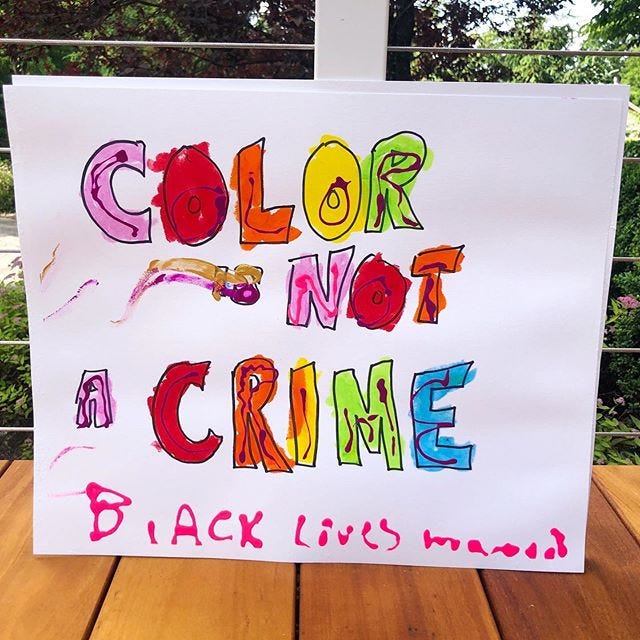Last September, I got on a plane (remember planes!) and flew down to Chapel Hill, North Carolina to visit Mosaic Comprehensive Care, an internal medicine practice run by Louise Metz, MD. Dr. Metz is white, thin, and was educated at elite schools. But she’s one of the most radical doctors working in America today. The Mosaic Center provides gender-neutral, weight-inclusive care — and is one of only a handful of medical practices in the country that does not routinely weigh patients.
Instead, I watched Dr. Metz and her colleagues treat patients for diabetes, acid reflux, joint issues, and high blood pressure without ever once discussing their body size or suggesting they make it smaller. As a result, she’s able to treat the issues that a weight-focused doctor can miss: The restrictive eating disorder that fueled the weight loss they want to celebrate. The depression, insomnia and chronic stress driving up blood pressure. Doctors need to see beyond the scale, Metz argues, and consider their whole patient.
For my new feature in the July issue of Scientific American, I explore Metz’s approach, as well as the larger question of what might happen if the medical and scientific communities let go of the number on the scale. I hope you’ll read it here. And I also hope you’ll read its companion piece, by Lindo Bacon and Sabrina Strings on the racist roots of fighting obesity. My piece answers all of your “but what about health?” questions. But their work shows that our cultural belief that thin equals health is rooted in fear and hatred of black bodies. Challenging those beliefs—and separating weight from medicine—is critical to anti-racism work. And it’s going to be a lot better for our health too.
PS. If you want to opt out of weigh-ins at your doctor’s office, and start a conversation about weight-inclusive care, Dr. Metz has a great letter you can use. And here’s one for your pediatrician, too.
Black Lives Matter
I’ve been feeling frustrated that we can’t go to any protests against police brutality because my 6-year-old is at high-risk for coronavirus, so we need to stay home right now. But isolation can make explaining racism to white kids way too abstract — she’s in a bubble within her bubble right now. So a friend who is marching very kindly suggested that we could make signs for their next demonstration. I pulled up photos from recent protests online so V and I could read all the slogans and discuss what ours could say. Then she picked what to write on the signs that she and B decorated. We had a good conversation about racism, police, white privilege and how to be allies. I’m glad she’ll get to see her sign at a protest but more grateful this activity gave us a concrete way in to one of the millions of conversations we need to have about dismantling racism and white supremacy.

Hopefully this will be helpful for other parents in isolation who are looking for tangible ways to involve their kids in anti-racist work. You can hang your sign in a window or on your house if you don’t have a protest happening near you—but you probably do!
Something else we’re doing is reading a lot. Some of my favorite books for kids include:
One Word from Sophia by Jim Averbeck, illustrated by Yasmeen Ismail
I Like Myself! by Karen Beaumont, illustrated by David Catrow
Not My Idea: A Book about Whiteness by Anastasia Higginbotham
Julian Is A Mermaid by Jessica Love
Just In Case You Want to Fly by Julie Fogliano, illustrated by Christian Robinson
Another by Christian Robinson
You can find more reading recommendations for kids saved in my Instagram highlights. And the grown-up book that I can’t put down right now is Homegoing by Yaa Gyasi.
P.S. One other novel you need to read right now is WANT by my good friend Lynn Steger Strong. I’ll be discussing it with her virtually at an event hosted by Split Rock Books on July 22. Join us, won’t you?
You're reading Burnt Toast, Virginia Sole-Smith's monthly newsletter. Virginia is a feminist writer, co-host of the Comfort Food Podcast, and author of The Eating Instinct. Comments? Questions? Email Virginia.
If a friend forwarded this to you and you want to subscribe, sign up here.



